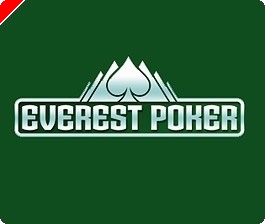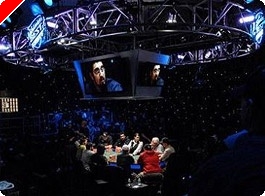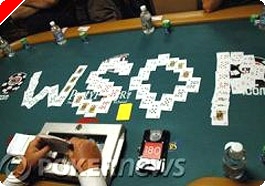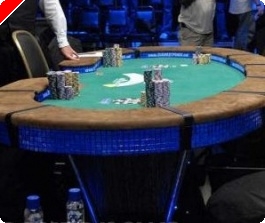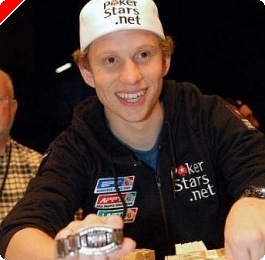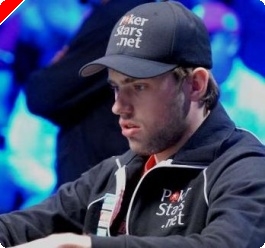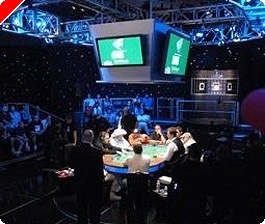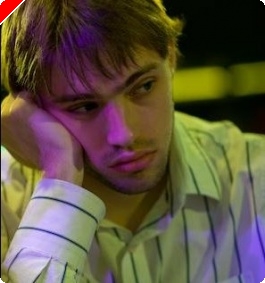A Comprehensive Look at the WSOP Final Table Delay �C Part Two
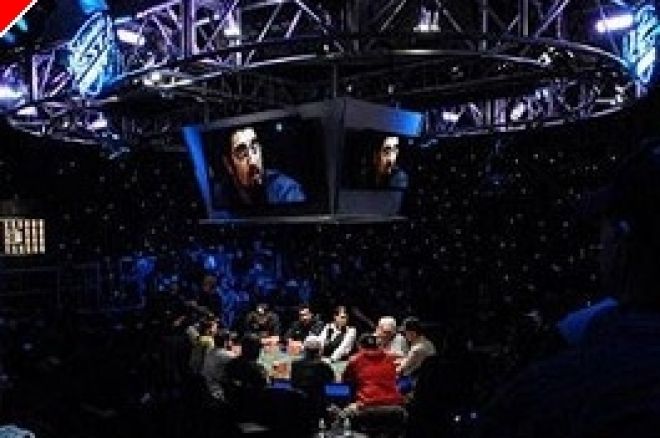
Yesterday, in Part One of our look at the WSOP final table delay, we examined the differences to the schedule this change would cause. In addition, we looked at the opportunities available and challenges presented to the 'November Nine' as part of this move. Join us today as we examine the final table in November, and some of the possibilities that have some critics worried that this might lead to a different set of problems with the WSOP.
THE FINAL TABLE
While the delay gives ESPN and the rest of the media time to learn about the players, there will not be 117 days of hype. Expect an initial wave of publicity when the "November Nine" reach the final table, particularly within the poker community. The attention of the mainstream media, however, won't really gain momentum until the final table draws near. The week between ESPN's final-table preview show and the actual broadcast will likely be the most intense.
Unlike past final tables, which featured mostly unknown players, poker fans will have had a chance to see these players in action, judge their play, and learn the differences between them. At least enough to root for some players, and root against others. It's a much more compelling experience when fans have a rooting interest.
When the November Nine take their seats on November 9 (yes, I said it twice), Pollack compares the evening to a major sports championship, saying, "We think this will be poker's biggest night. Ever." He went on to say, "There will be ample seating for the public. We expect poker's biggest names to come out, whether or not they're playing at the final table." Pollack also expects "a very healthy contingent of stars from film and television and music, just as you see courtside at an NBA game with celebrities and fans and family members."
The full schedule for that night hasn't been finalized, but they may schedule the WSOP Player of the Year presentation and the WSOP Hall of Fame induction to coincide with the high-profile final table. Once the pre-game ceremonies are complete, the players will resume play right where they left off a few months earlier, playing down to the final two. Then they'll stop again, and ESPN will begin editing their two-hour episode.
The final two will return "late in the evening" the next night (Nov. 10) to play to a winner. They expect the champion to be determined sometime after midnight, and ESPN's two-hour final table episode will air about 18 hours later at 9:00 pm ET on November 11.
WHY ISN'T THE FINAL TABLE BEING SHOWN LIVE?
The final table will not be broadcast live, but a day later. ESPN will quickly edit together a two-hour episode, and air it the next night (November 11th) at 9:00 pm.
So why isn't it being shown live?
There are basically two choices for a live final table: (1) Schedule a 10-hour block and let fans watch hours of blind steals; or (2) accelerate the blind structure to ensure they reach a winner within three hours. Casual fans won't watch option #1, which would kill the ratings. Players and serious fans would revolt at the mere mention of option #2.
For the record, the blind structure hasn't been altered at all; that was a dealbreaker throughout the brainstorming sessions and negotiations.
While there will be no live television coverage like last year's pay-per-view, there will still be the usual live updates over the internet. (PokerNews.com will be providing the official live updates.) There will be no media lockdown, and none of the players will be sequestered at any point in the tournament. Fans with internet access who want to know the results will find them easily, while it should also be relatively easy to stay spoiler-free if that's your preference. (Just avoid poker websites for a day or two.)
If everything works out, the end result will be one of the most compelling �� and hopefully, most watched �� televised poker tournaments in history. Pollack says, "Now, poker fans will be anticipating who will win, instead of just talking about who won." The anticipation from the hard-core fans (who already knew the winner in past years) will trickle down to the more casual fans, and that will in turn trickle down to attract new fans who are curious what the buzz is about.
WORST-CASE SCENARIOS: COLLUSION / FOUL PLAY / DEATH
A lot of players have voiced concern over worst-case scenarios. They generally fall in the categories of foul play (collusion, death threats) or the possibility of missing the final table, due to incarceration, illness, or death.
The rules have always covered the last three scenarios, and they remain the same this year. Item 52 in the WSOP Tournament Rules states, "A player who is disqualified shall have his or her chips removed from play and no refund will be provided to that disqualified player. Any player who forfeits play for health or other personal reasons after the start of a tournament will have his or her chips blinded off accordingly."
If a player can't make the final table for whatever reason, they (or their heirs) would be paid according to the place their stack finished when it was finally blinded to the felt. Pollack admits that they can't plan for every contingency, but his team is prepared to address whatever issues might come up, and do what they can to help all nine players return safely to Las Vegas.
Some critics claim that the extended delay greatly increases the interaction between the November Nine, and therefore increases the potential for collusion. But this is no anonymous online sit-n-go; it's probably the single most difficult situation in the world in which to collude. The players are surrounded by multiple TV cameras, and holecam cards record all the action. If collusion were discovered, those players would be disqualified, forfeiting their prize money and receiving a lifetime ban from all future WSOP events. I consider that to be a pretty strong deterrent, but some are more cynical than I am.
The worst-case scenarios that critics have mentioned is death threats, or hiring a hitman to take out the chipleader or the most skilled opponent. Again, the high media profile of the November Nine makes this more difficult (a suspicious death would certainly raise questions with law enforcement). Of course, millions and millions of dollars are hanging in the balance for most major sports championships, and the star players on those teams don't fear hit men. Why hasn't Ernie Els taken out Tiger Woods? Aside from the Tonya Harding-Nancy Kerrigan fiasco from the early 1990s, this take-your-opponent-out scenario is more likely in movies than reality.
While there are some clear downsides, Pollack and his team are confident that the negatives are outweighed by the positives. Pollack expected there to be a backlash, and he was braced for it. "It wouldn't be the first time that we're criticized �� or I'm criticized �� for doing something that some may feel is too big, or too bold. But progress comes with its detractors. �� Our track record over the last three years has shown that we're able to respect the history, tradition, and heritage of the World Series of Poker, while simultaneously innovating for the benefit of the people who participate in the World Series of Poker, and the game globally."
THE MAIN EVENT IS NOT WHAT IT ONCE WAS
Regardless of your feelings on the issue, this new format is the reality for 2008. If you pre-registered, and absolutely refuse to accept this new format, Harrah's is willing to fully refund your entry fee.
As you consider these changes, I think you have to ask yourself a fundamental question: "What is the nature of the WSOP Main Event?" Many people still see it as it once was �� an elite championship, with respected winners like Doyle Brunson, Stu Ungar, Johnny Chan, and yes, even Phil Hellmuth. But those days died with Chris Moneymaker and the holecam.
Before Moneymaker's victory, this was a different event. There were a few fish in the field, but not many. The last few years, the fish have outnumbered the sharks by about 10-to-1. With thousands and thousands of satellite entrants outnumbering the pros each year, it's unlikely that the winner of the Main Event will ever again be respected as the best player in the world.
Back then, it was a once-a-year event to have the top pros in the world show up to play a $10,000 buy-in poker tournament. Nowadays, there are several tournaments like that each month.
The WSOP Main Event had to change, or lose relevance and become "just another poker tournament." Market forces showed a huge demand for the Main Event (for many players, it's their only major tournament of the year), so Harrah's kept the buy-in low and expanded the capacity to guarantee that everyone who could raise $10,000 would get a seat. It's the most democratic "sporting event" in history, and I sum it up with this phrase:
The WSOP Main Event. Everybody can play; Anybody can win.
No longer a true championship, the WSOP Main Event has evolved into a different kind of tournament. It's about grand size (Biggest field! Biggest prizepool!) and a celebration/exhibition of our game to the non-poker world; many people think it's the only poker tournament each year.
If you look at the Main Event from that angle, this change is a natural fit. Increase the TV exposure, and draw more people and sponsors to the game. This isn't about the best of the best; it's about the biggest of the biggest.
For those of you who miss the days of the true championship, you should turn your attention to Event #45: $50,000 H.O.R.S.E. It is everything that the Main Event used to be: an elite championship featuring the best players in the world. Every table is a mini-All Star Game.
I expect some critics will boycott these changes to the Main Event by sitting out, but I'm guessing they will eventually be outnumbered by the masses who enter because of these changes. Those of you who long for a true championship should polish your non-hold'em repertoire and pony up the fifty grand to take your seat against Barry Greenstein, Phil Ivey, and Daniel Negreanu in the toughest tournament of the year. Victory brings a seven-figure payday, the respect of your peers, and the David "Chip" Reese memorial award.

